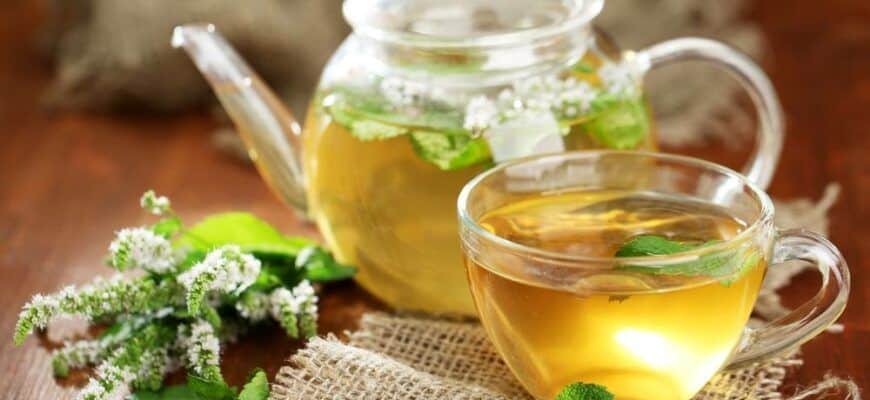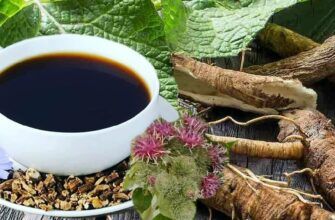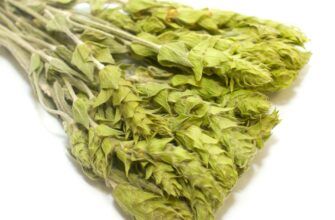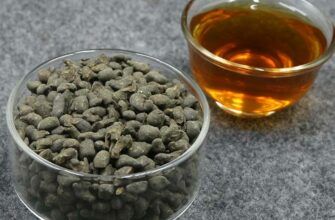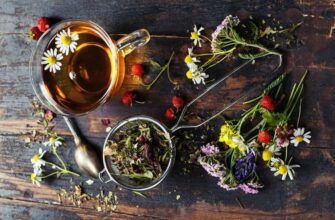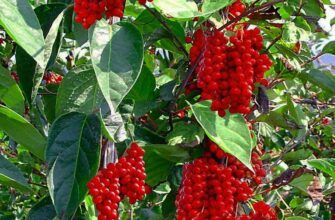Herbal tea is a tea consisting of any leaves other than the leaves of the Camellia Sinensis tea plant, first made in China and the Middle East.
Herbal teas can be made from fresh or dried flowers, leaves, seeds, roots, usually by steeping parts of the plant in boiling water for a few minutes. Seeds and roots can also be boiled. Then the broth is filtered, a sweetener is added, if necessary.
Many people believe that herbal teas can only perform medicinal functions and be used only as prescribed by a doctor. But it's not. Herbal teas are useful for daily use. They are rich in trace elements, vitamins and organic acids.
The active substances that make up various herbal teas have a beneficial effect on the body and help prevent many diseases.
In general, herbal teas contain a lower concentration of medicinal plants and do not contain potent plants.
It is better to start the morning meal not with coffee, but with herbal tea. Herbal tea will charge you with energy in the morning.
All herbal teas can be divided into three groups. These are vitamin, tonic and soothing teas.
Herbal teas can be bought both in factory packaging and prepared by yourself. At home, they can be prepared from fresh or dried leaves, flowers, and roots. The collected mixture you need, you just need to pour hot water and leave for a few minutes. If the composition includes seeds or roots, then they must be boiled in an enamel saucepan. To achieve the best effect, it is better to chop the ingredients and grind the fresh berries. Dry berries are best crushed.
Herbal tea can be drunk at any time of the day convenient for you, even at night. Especially if it's a soothing tea. Leaves of mint, lemon balm, St. John's wort soothe well.
- Varieties of herbal tea
- Chang Shu purple tea
- Ivan-tea (Kiprey, Koporsky tea)
- Hibiscus
- Thyme (Thyme)
- Kuril tea (Cinquefoil)
- Mursala (Pirinsky) tea
- Sea buckthorn tea
- Kidney tea (orthosiphon)
- Fennel tea
- Chrysanthemum flower tea
- Burdock tea
- Chamomile tea
- Ginseng tea
- Ginger tea
- Jiaogulan (gynostemma five-leafed, Jiaogulan)
- Lo Han Go (arhat)
- San Qi Hua
- Tea with mint
- Goji berry tea
- Cassia seed tea
- lemongrass tea
- Tea Ban Lan Gen (Ban Lan Gen)
- Nasturtium tea
- Kudin tea
- Rooibos
Varieties of herbal tea
The varieties of herbal teas are endless, but most of them are made in China and Japan.
Chang Shu purple tea
A new type of product has appeared on the Russian tea market - blue tea. Most often, we can find it under the name Chang Shu purple tea. It is obtained by brewing the flowers of the Clitoria trifolius plant, which is also popular in Southeast Asian folk medicine. This drink has a delicate, slightly herbaceous taste and contains trace elements beneficial to health.
Ivan-tea (Kiprey, Koporsky tea)
The well-known herb Ivan-tea, also called fireweed, not only has a therapeutic and preventive effect, but also brings pleasure due to its excellent taste.
Hibiscus
Hibiscus can be drunk cold or hot and with many different ingredients for a unique taste. This article will present several recipes for making hibiscus tea. And also considered its useful properties and contraindications.
Thyme (Thyme)
In fact, thyme herbal tea is an excellent remedy for coughs associated with bronchitis and upper respiratory infections. However, it also has contraindications.
Kuril tea (Cinquefoil)
In Russian folklore, this herb is already mentioned in the legend of Ilya Muromets, who received heroic strength from this herb. Healers call her "powerful", using to get rid of "thirty ailments" and maintain health.

Mursala (Pirinsky) tea
You can find a lot of information about Mursala tea on the net, unfortunately, most of it is "selling" or "sensational" materials. They repeat one after another frayed myths about astronauts, a special flight for the Central Committee of the CPSU, Turkish sultans and other nonsense. In fact, the history of Mursala (Pirinsky) tea is more interesting than cheap sensations.
Sea buckthorn tea
Sea buckthorn tea is very useful, it has anti-inflammatory and tonic effect. This tea has an incredible taste and amazing aroma. For the preparation of tea, not only berries are used, but also shrub leaves and even sea buckthorn bark.
Kidney tea (orthosiphon)
Sometimes kidney tea is referred to as "flushing therapy". It is used for diseases of the bladder and kidneys, including bacterial infections and kidney stones, as well as liver and gallbladder problems, including stones, and for gout and joint pain (rheumatism).
Fennel tea
For those who suffer from poor digestion, gas or bloating, a cup of fennel tea after a heavy and heavy meal can be the simplest and most effective solution to these problems. Greek doctors prescribed this herbal tea to nursing mothers to increase lactation.
Chrysanthemum flower tea
Decaffeinated tea is known for its calming and relaxing properties. Made from dried chrysanthemum flowers, it has a delicate sweet taste and is very refreshing.
Burdock tea
Burdock root tea has been highly valued throughout the world for thousands of years for its ability to purify the blood and reduce internal heat.
Chamomile tea
Well known medicinal herbal tea. It has the ability to calm, relax muscles, and is used as a sedative.
Ginseng tea
Stimulant tea, used like coffee, as an invigorating drink, is popular in China and Korea.
Ginger tea
Known in many countries. Peeled and chopped ginger is poured with boiling water, honey, orange or lemon are often added to the broth for flavor.
Jiaogulan (gynostemma five-leafed, Jiaogulan)
Gives longevity, improves health, relieves fatigue, strengthens the immune system.
Lo Han Go (arhat)
Tea made from the fruit of the Lo Han Guo tree is used as a cough and sore throat remedy, and is also believed to bring longevity.
San Qi Hua
Tea from the flowers of the San Qi Hua plant, sweet and fresh in nature, is calming, lowers blood pressure, and is used for dizziness and tinnitus due to hypertension.
Tea with mint
It has a pleasant aroma, which is simply impossible to confuse with something. Tea from ordinary mint differs from peppermint in its special mildness.
Goji berry tea
Known in Asia as one of the most nutrient-dense foods. For almost 2000 years, goji berries have been used in Chinese traditional medicine.
Cassia seed tea
Clinical experiments show that tea containing cassia seeds is good for soothing tired eyes and helps with overweight.
lemongrass tea
Literally "berry of five flavors", it is a deciduous-woody liana that grows in the forests of Northern China and the Russian Far East.
Tea Ban Lan Gen (Ban Lan Gen)
The root of this plant is useful for detoxifying the body and helps with sore throats. Also used to prevent encephalitis and influenza.
Nasturtium tea
Used externally as an antibacterial agent to treat bacterial infections. It is also used internally as a healing decoction to fight bacterial infections, especially respiratory infections, and to treat flu and colds.
Kudin tea
Also known as "bitter tea", a unique type of tea unlike any other.
Rooibos
A reddish plant that is grown in South Africa and is used to make an infusion. Rooibos is called red tea. Rooibos contains antioxidants, far surpassing green tea in their quantity and does not contain caffeine.
Read more: